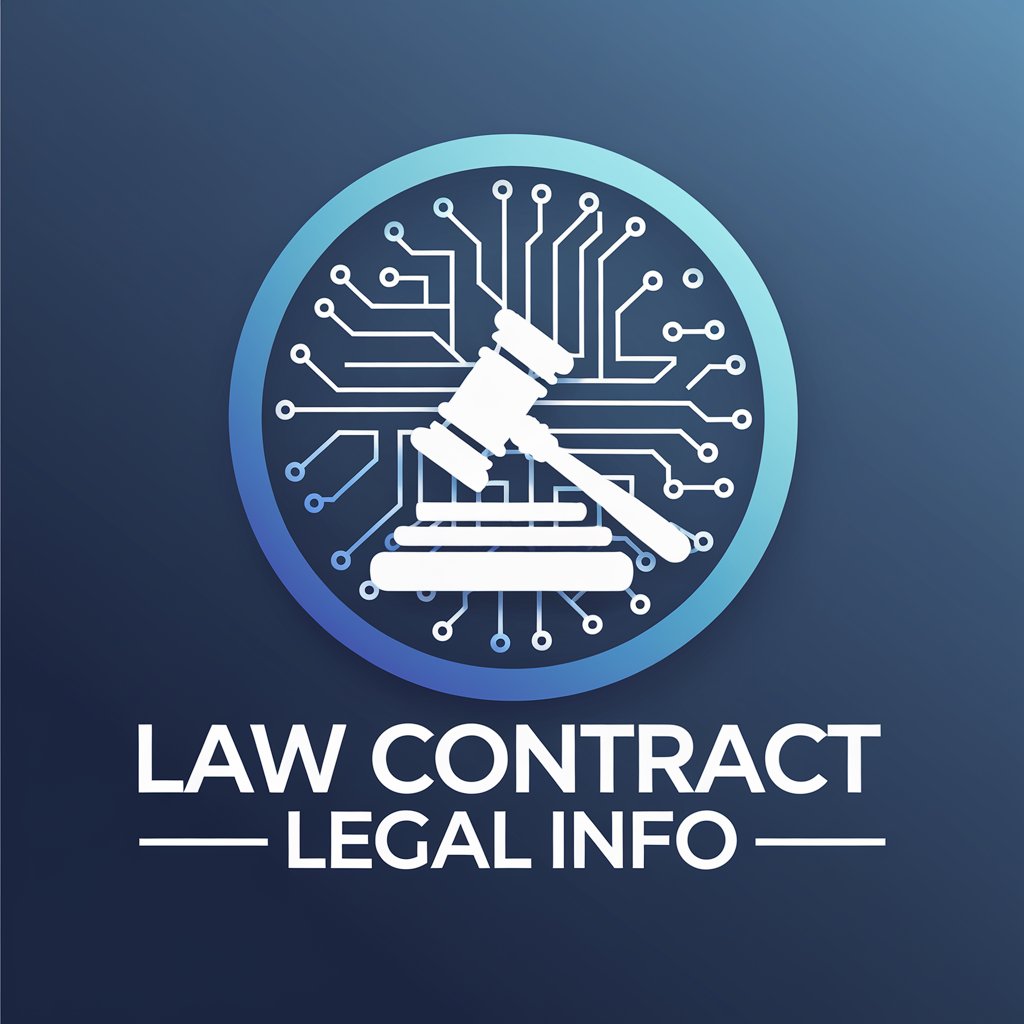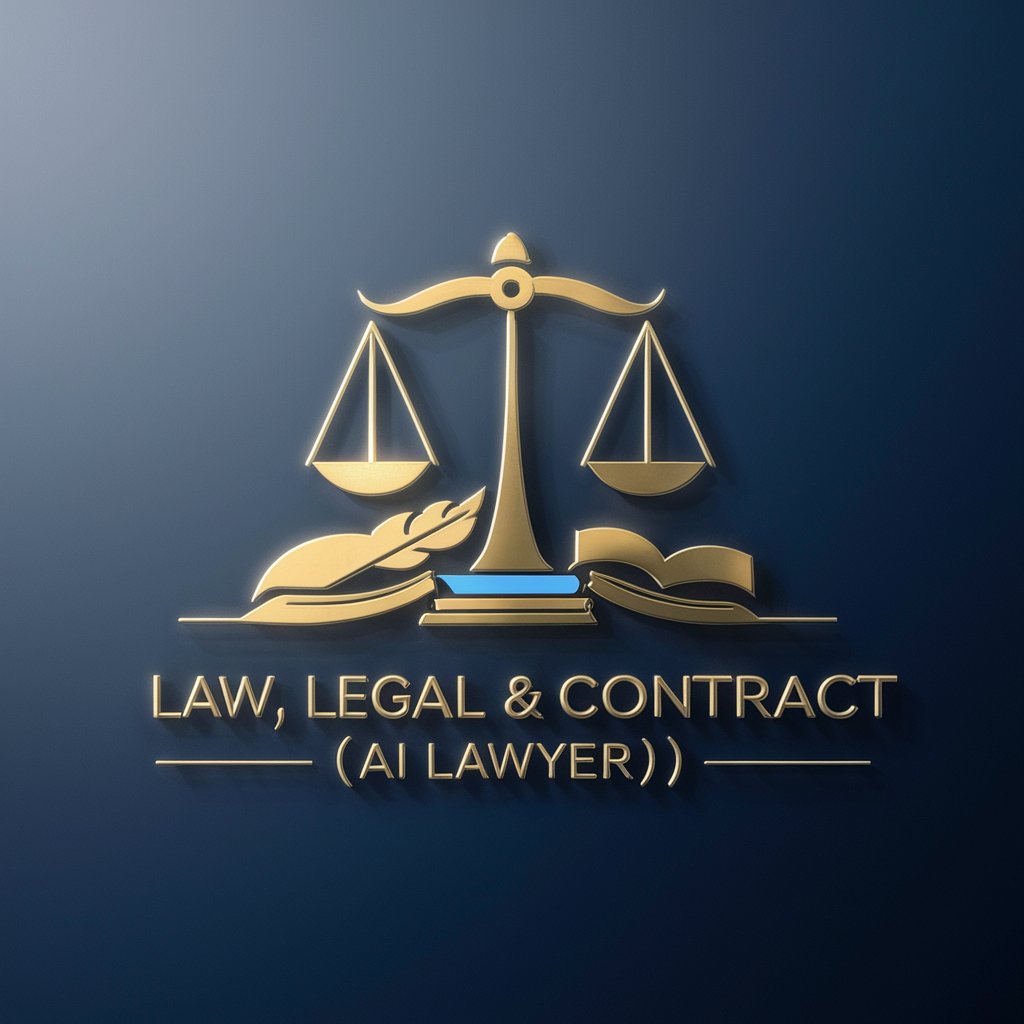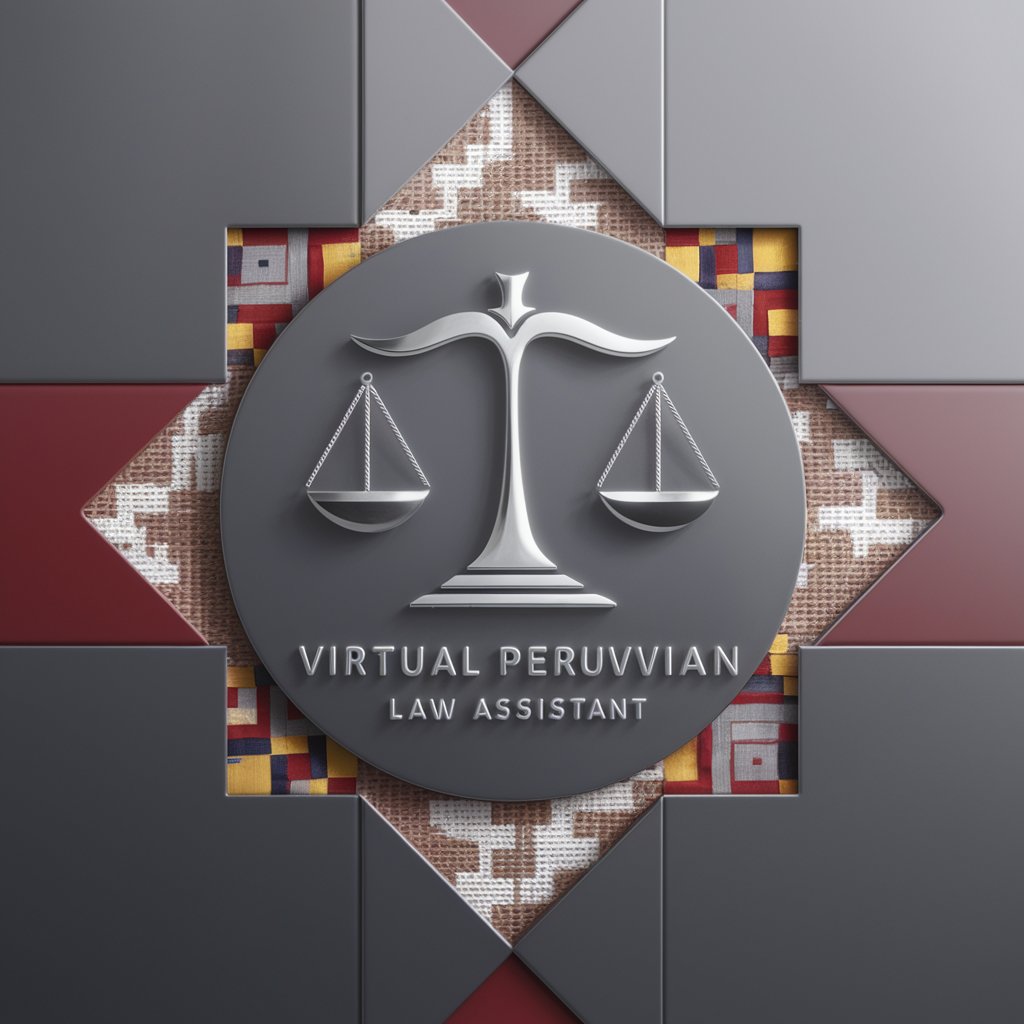
Legal GPT (Law & Contract)-legal document generation and review.
AI-powered legal drafting and analysis.
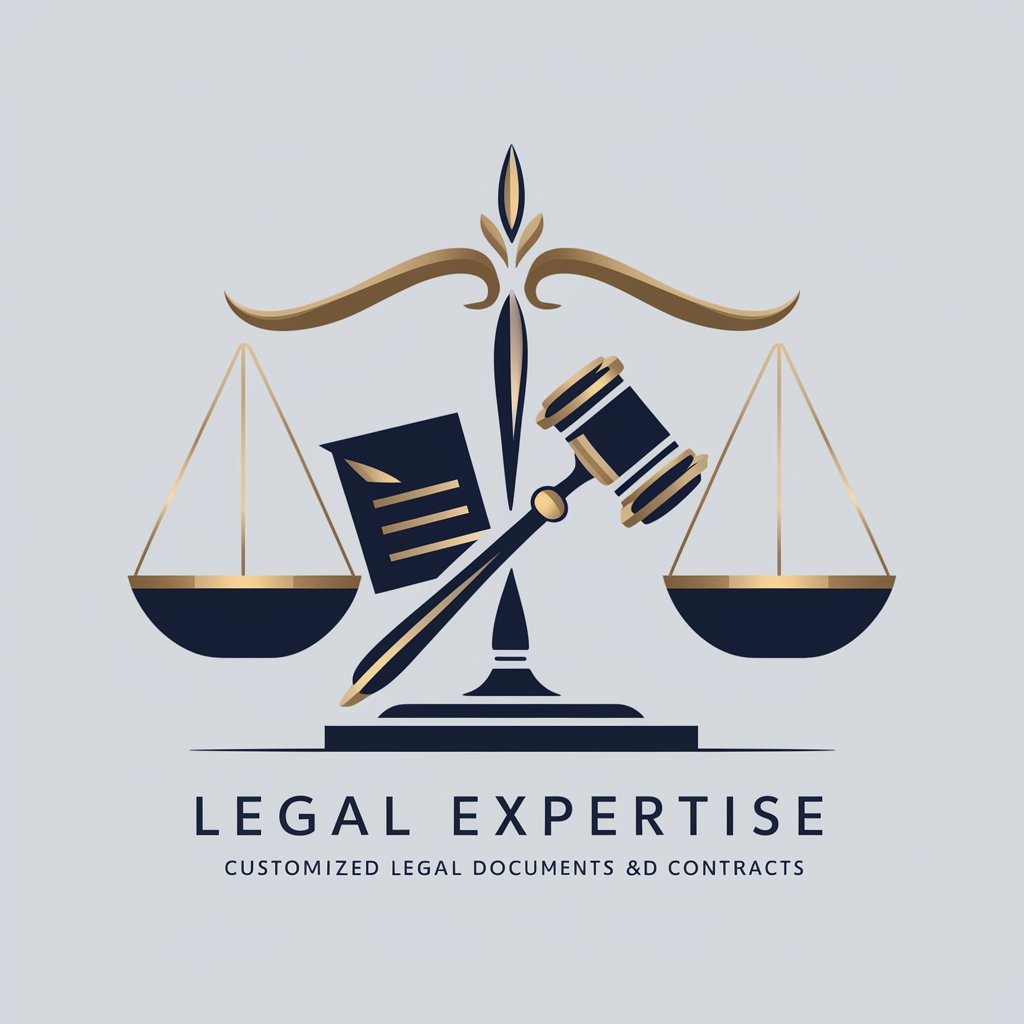
🔴🔴DOWNLOADABLE CONTRACTS🔴🔴 Explanations of the legal system and law and its applications. From basic principles to advanced topics, deepen your legal knowledge.
🏛️ How does the appeals process work in the legal system?
📈 How do I start studying for the bar exam?
🚀 How does intellectual property law work?
🏛️What is a Small Claims court?
🔍 What is the role of a paralegal in the legal field?
🕵️ What are the principles of evidence law?
Get Embed Code
Introduction to Legal GPT (Law & Contract)
Legal GPT (Law & Contract) isLegal GPT overview an AI-powered language model designed to assist with legal research, contract analysis, document drafting, and other tasks commonly found in the legal and contract management fields. Its primary function is to leverage advanced natural language processing (NLP) techniques to understand, generate, and interact with legal texts, offering users an intelligent assistant for tasks like legal document review, contract drafting, and legal compliance checks. The model is built on a foundation of both general legal knowledge and specific contract law principles, enabling it to address a wide array of legal issues across various industries. Examples of its functions include generating contract clauses, summarizing lengthy contracts, detecting inconsistencies in terms, and even assisting in dispute resolution. The goal of Legal GPT is to make legal processes more efficient, accessible, and cost-effective, by reducing manual effort and providing AI-powered suggestions that align with industry standards and legal best practices.
Main Functions of Legal GPT (Law & Contract)
Contract Drafting and Generation
Example
Legal GPT can generate entire contracts or specific clauses based on user input. For instance, if a user requests a non-disclosure agreement (NDA), Legal GPT can craft an NDA based on the necessary legal language,Legal GPT overview terms, and conditions, adjusting for jurisdiction if needed.
Scenario
A startup founder needs to create a confidentiality agreement for their new employees. Instead of manually drafting the contract, they use Legal GPT to generate a tailored NDA in minutes, ensuring it includes all key legal provisions such as dispute resolution clauses, confidentiality periods, and intellectual property protections.
Contract Review and Analysis
Example
Legal GPT can analyze and review contracts by identifying potential risks, inconsistencies, or unfavorable clauses. It can flag ambiguities, legal jargon, and terms that may need clarification, and offer suggestions for revisions.
Scenario
A small business owner receives a service contract from a vendor but is unsure about the terms related to liability and indemnification. Using Legal GPT, they upload the contract, and the system highlights concerning clauses, such as one-sided liability terms, suggesting revisions to balance the agreement in favor of the business.
Legal Research and Compliance Checks
Example
Legal GPT can perform legal research by reviewing statutes, case law, and legal precedents to answer specific queries. It can also check documents for compliance with current regulations and standards, offering insights based on jurisdiction and industry-specific requirements.
Scenario
A company expanding into a new market needs to ensure their contracts comply with local labor laws. Legal GPT is used to quickly analyze the relevant laws in the new jurisdiction, cross-checking against existing contracts and suggesting necessary changes to ensure compliance with local labor laws, tax regulations, and environmental rules.
Clause Customization and Negotiation Assistance
Example
Legal GPT can customize contract clauses based on negotiation goals. Whether it's adjusting payment terms, modifying termination clauses, or changing dispute resolution mechanisms, the system can suggest language that aligns with the user's objectives.
Scenario
During a contract negotiation between a software developer and a client, Legal GPT is used to modify the terms related to payment schedules and intellectual property rights. It provides suggestions on how to phrase terms that are fair and legally sound, facilitating smoother negotiations.
Contract Summarization and Key Term Extraction
Example
Legal GPT can summarize lengthy contracts, highlighting key terms such as payment conditions, delivery timelines, and dispute resolution processes, making it easier for users to quickly grasp the essential elements of a contract.
Scenario
A legal associate is tasked with reviewing a 100-page merger agreement. Rather than reading the entire document, they use Legal GPT to generate a concise summary, focusing on critical terms like payment structures, the scope of representations, and conditions for terminating the agreement.
Ideal Users of Legal GPT (Law & Contract)
Small and Medium Enterprises (SMEs)
SMEs often lack in-house legal teams or resources to handle complex contract negotiations and compliance checks. Legal GPT provides an affordable and accessible tool for drafting, reviewing, and negotiating contracts without the need for costly legal consultations. For example, a small business owner might use Legal GPT to generate employee contracts or draft service agreements with clients, ensuring they meet legal standards while saving on legal fees.
Law Firms and Legal Professionals
Legal GPT can be highly valuable for law firms, particularly those with a high volume of document review or contract generation tasks. Lawyers can use it to draft legal documents, conduct legal research, or perform compliance checks more efficiently. For instance, a corporate lawyer could leverage the tool to quickly review contracts for clients in M&A deals, flagging potential issues, and offering immediate suggestions on contract language adjustments.
Corporations and In-House Legal Teams
In-house legal teams within larger organizations can benefit from Legal GPT for streamlining contract management, ensuring compliance across multiple jurisdictions, and automating routine legal tasks. For example, an in-house legal team at a multinational corporation might use the tool to analyze vendor contracts globally, ensuring they comply with both local laws and corporate policies, without having to manually review each document.
Startups and Entrepreneurs
Startups and entrepreneurs often need to handle legal matters quickly and on tight budgets. Legal GPT provides an easy-to-use tool for generating key legal documents, such as partnership agreements, NDAs, and licensing contracts. A startup founder might use the service to create a partnership agreement with a new business partner, ensuring the terms are fair and legally binding while saving time and money.
Contract Managers and Procurement Teams
Contract managers and procurement professionals often deal with large volumes of contracts, supplier agreements, and service contracts. Legal GPT can assist them in drafting standardized contracts, reviewing existing agreements for compliance, and even helping to resolve disputes. For example, a procurement manager could use the tool to analyze a supplier contract to ensure it meets company standards and contains appropriate risk mitigation clauses.
How to Use Legal GPTLegal GPT usage guide (Law & Contract)
Visit the platform
Go to aichatonline.org to begin using Legal GPT. You can start with a free trial without needing to log in or subscribe to ChatGPT Plus.
Choose a legal task
Identify the legal task you want assistance with, such as drafting contracts, interpreting laws, or reviewing terms. The platform will guide you through various templates and options.
Enter relevant details
Provide specific details or questions related to your legal situation. The more information you input, the more accurate the responses will be. For example, if creating a contract, include the parties' names, agreement terms, and any clauses you need.
Review generated content
Once Legal GPT processes your input, it will generate legal text, advice, or contract drafts. Review the content for relevance and completeness. You can make edits if needed.
Download or finalize your document
After reviewing, you can download the output in a format of your choice or finalize it. You can also request revisions or clarifications on any part of the generated document.
Try other advanced and practical GPTs
CTF Companion
AI-driven content generation and enhancement.
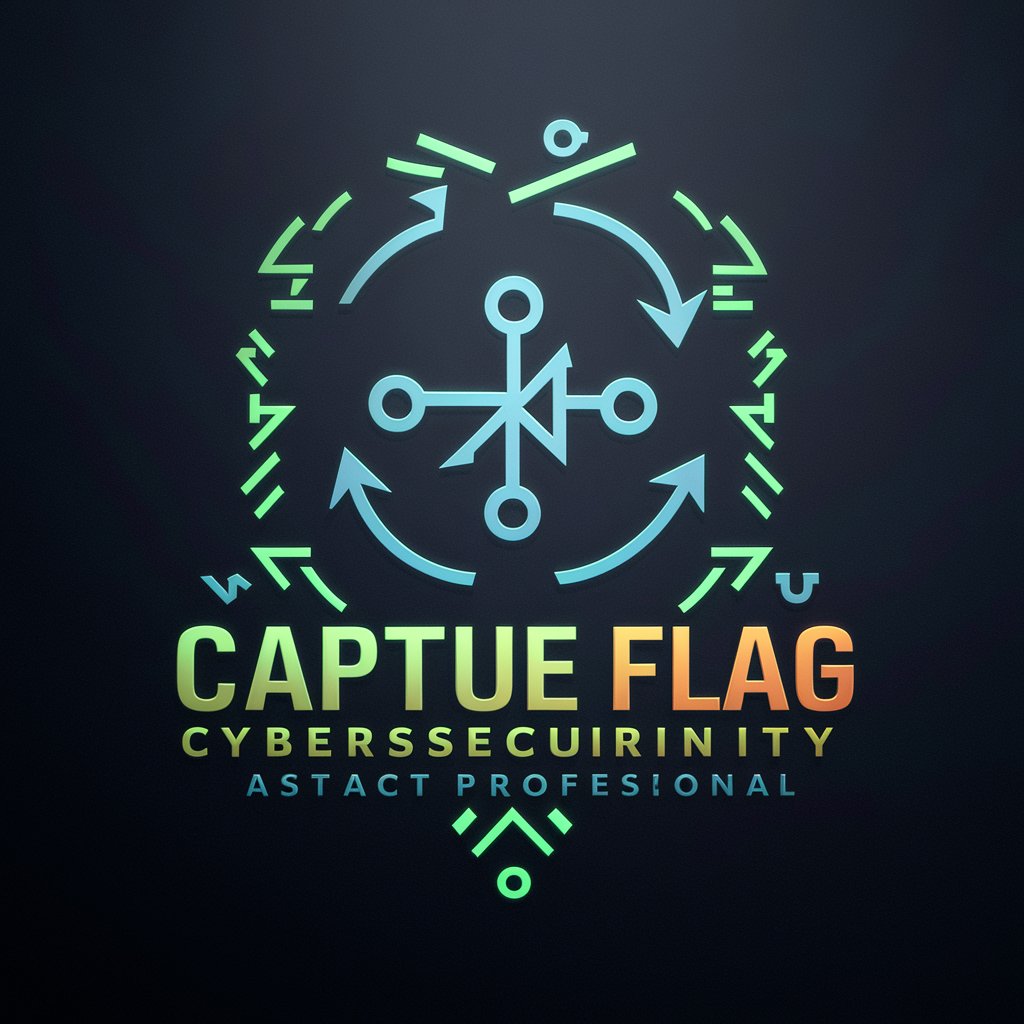
File Reader
AI-powered reading, extraction, and summarization for documents
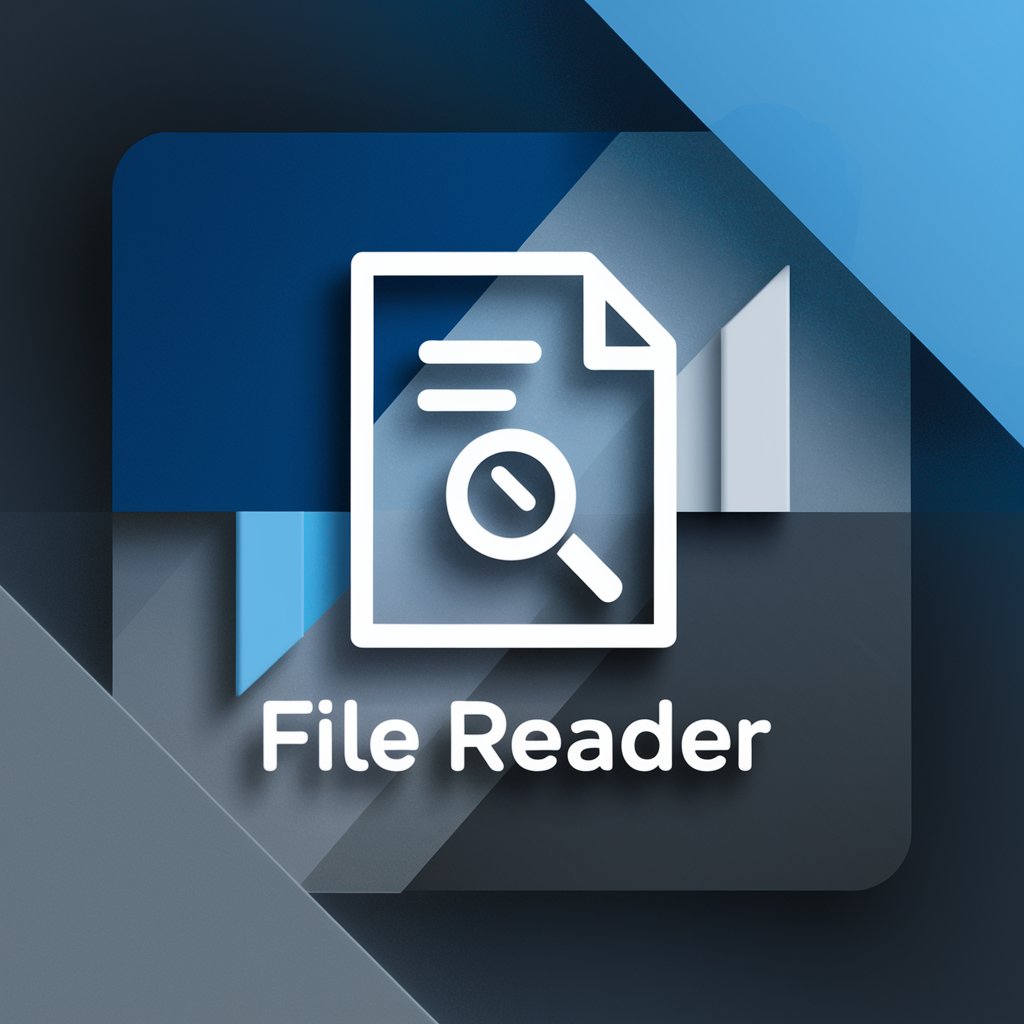
Social Media Copywriter
AI-driven content for engaging social media posts.

WriteForMe - academically | thesis (Craft Pro)
AI-powered thesis and academic writing support.
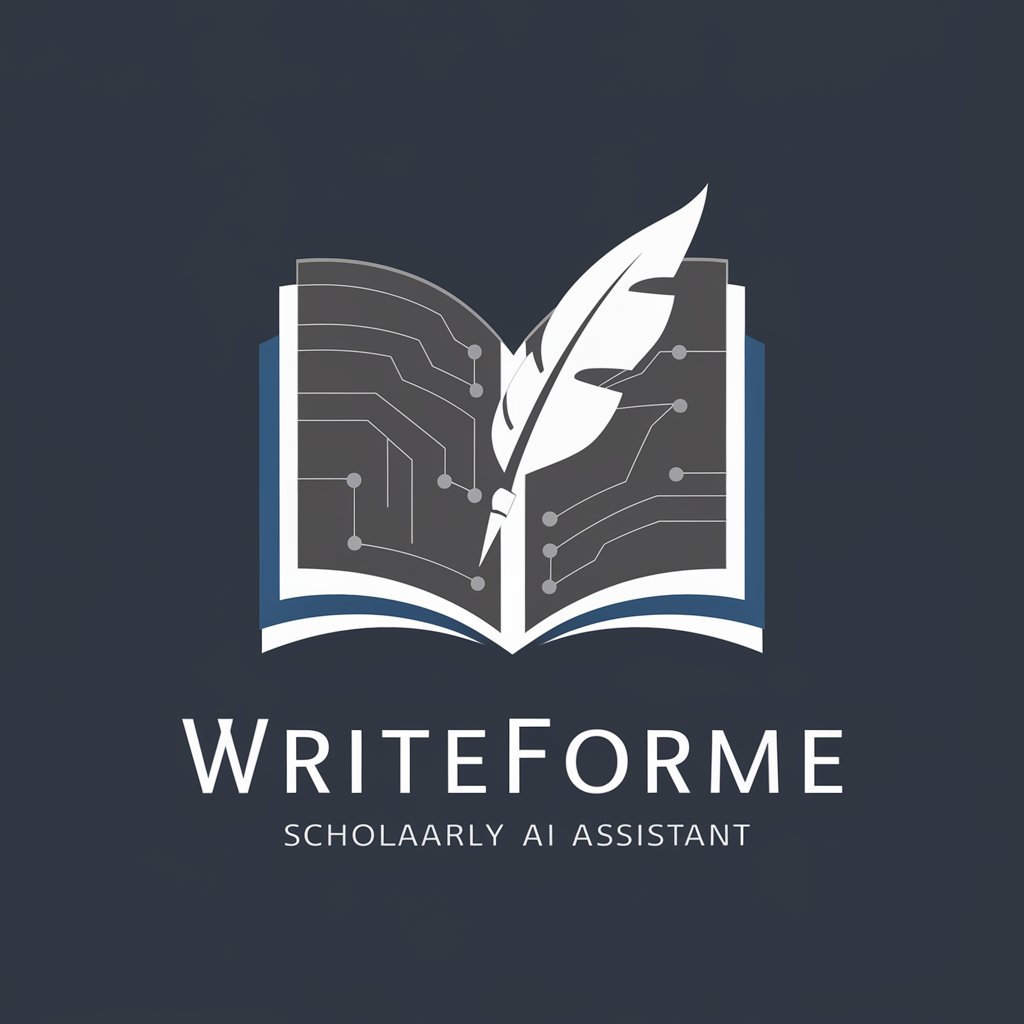
MySQL Expert
AI-powered SQL optimization and troubleshooting tool.
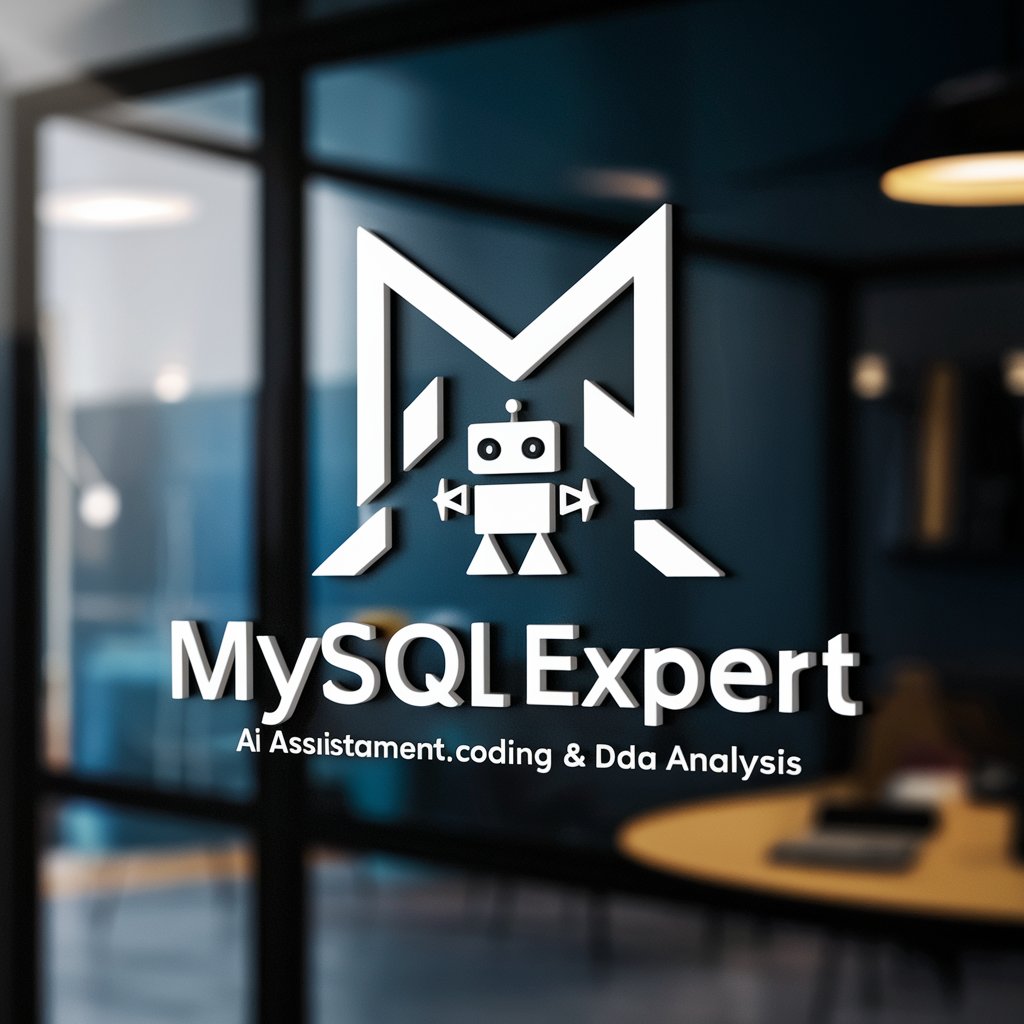
CV Generator
Create, Customize, and Download Your Perfect CV with AI

罵倒カフェの店員GPT(ツンデレ)
AI-powered tsundere café attendant delivering playful, customizable insults.

TOEIC & TOEFL Prep📚
AI-powered TOEIC & TOEFL practice with instant feedback
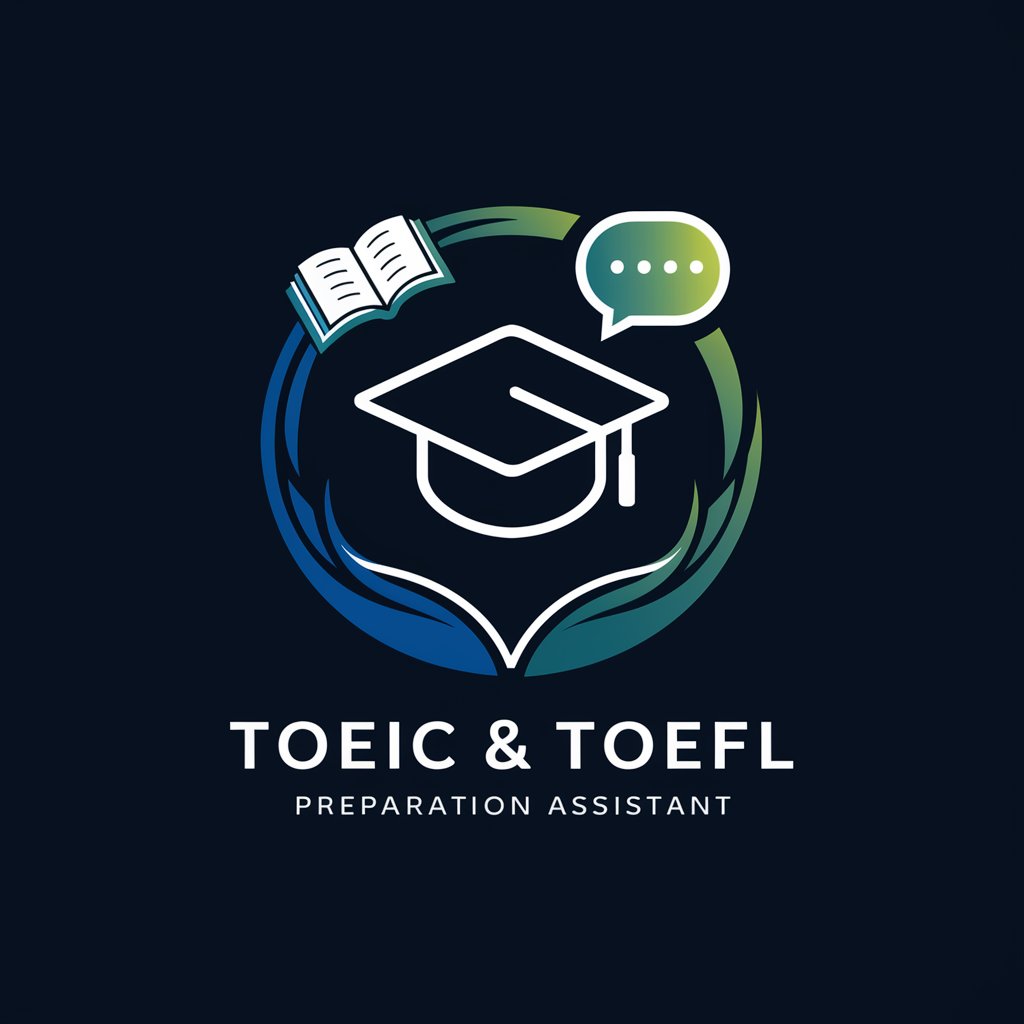
Quantum Mechanics Problem Solver
AI-powered Quantum Mechanics Problem Solver

チャットGPT
AI-powered chat that writes, codes, and teaches

Especialista em Contabilidade, DP e RH
AI-powered Brazilian accounting, payroll & HR expert

Profesor de Medicina Humana
AI-powered clinical reasoning, summaries, and materials

- Legal Research
- Contract Drafting
- Compliance Review
- Intellectual Property
- Terms Analysis
Frequently Asked Questions about Legal GPT (Law & Contract)
How does Legal GPT assist with legal documents?
LegalLegal GPT usage guide GPT helps you create, review, and understand legal documents such as contracts, terms of service, and agreements. It generates text based on your inputs, providing you with ready-made drafts or helping you analyze existing documents for compliance and clarity.
Can I use Legal GPT for contract review?
Yes, Legal GPT can analyze contracts and identify key clauses, terms, and potential issues. You can input a draft contract, and the tool will provide insights into its language, legal standing, and possible risks.
What are the prerequisites to use Legal GPT?
To use Legal GPT, simply visit the website at aichatonline.org. No subscription is required, and you do not need to log in to access the free trial. Just input your legal queries or contract information to begin.
Can I trust the legal advice provided by Legal GPT?
While Legal GPT generates legal information based on data inputs and its trained model, it is not a substitute for professional legal counsel. Always verify the results with a licensed attorney, especially for complex or high-stakes legal matters.
How accurate are the contract drafts from Legal GPT?
The accuracy of the contract drafts depends on the clarity and completeness of the information you provide. The more specific and detailed your inputs, the more tailored and relevant the draft will be. However, it is always recommended to have a legal professional review the document before final use.

